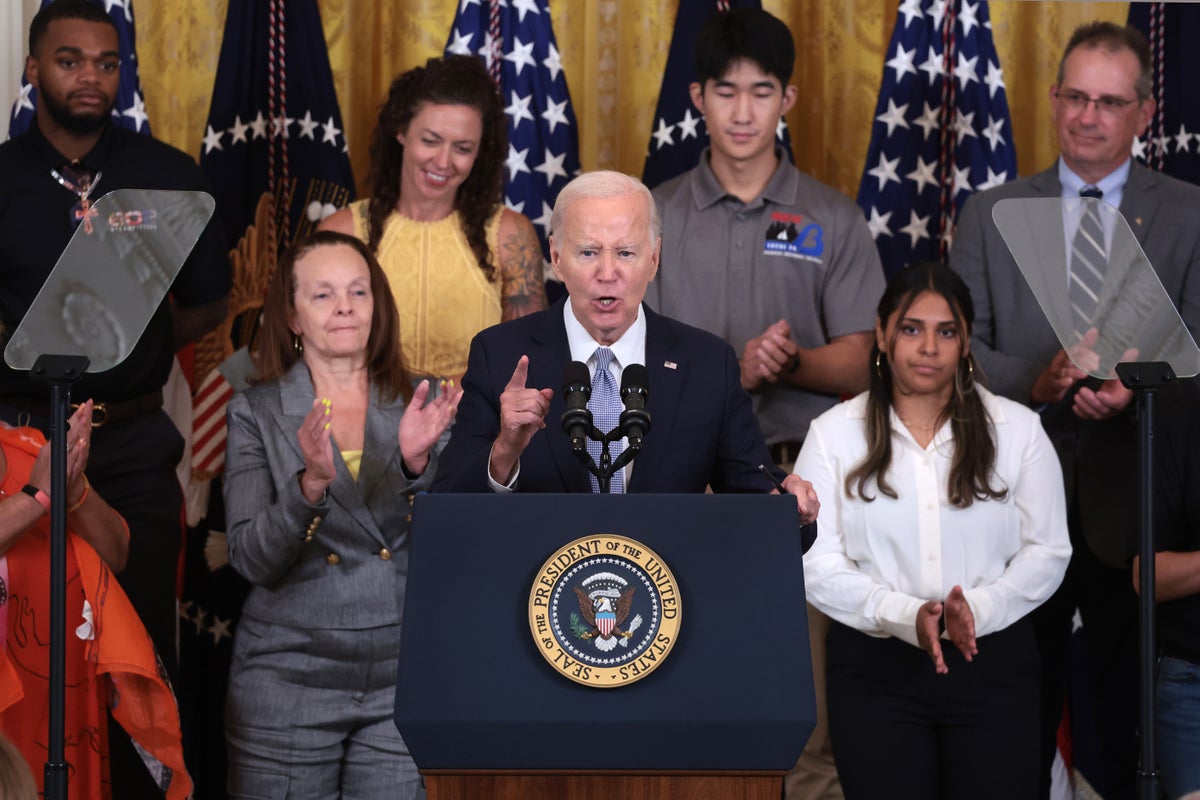
On Tuesday, the Biden administration announced the first round of 10 prescription drugs that Medicare will negotiate prices for.
The announcement comes a little more than a year after President Joe Biden signed the Inflation Reduction Act, Democrats’ signature law that is also the single largest investment in combating climate change.
But a large part of the law also deals with drug costs.
The legislation caps insulin for Medicare patients at $35.
Democrats have long wanted to allow Medicare to negotiate drug prices, which it hopes will lead to lower prescription drug prices, but were unable to do so when they passed the Affordable Care Act, otherwise known as Obamacare.
“For far too long, pharmaceutical companies have made record profits while American families were saddled with record prices and unable to afford life-saving prescription drugs,” Department of Health and Human Services Secretary Xavier Becerra said in the announcement. “Although drug companies are attempting to block Medicare from being able to negotiate for better drug prices, we will not be deterred.”
But the drug industry’s advocates argue that this would stifle innovation in the pharmaceutical industry. Indeed, the Pharmaceutical Research and Manufacturers of America, known as PhRMA, announced its opposition to the drugs being listed, calling it “government price setting.”
“Many of the medicines selected for price setting already have significant rebates and discounts due to the robust private market negotiation that occurs in the Part D program today,” Stephen J Ubl, the organisation’s president, said in a statement. “Giving a single government agency the power to arbitrarily set the price of medicines with little accountability, oversight or input from patients and their doctors will have significant negative consequences long after this administration is gone.”
The drugs whose prices are being negotiated are:
Eliquis is used to treat and prevent blood clots and reduce the risk of having a stroke. The Department of Health and Human Services said that it covered $16,482,621,000 in costs under Medicare Part D, which covers prescription drugs, between June 2022 and May 2023 for 3,706,000 patients.
Jardiance is meant to treat diabetes and heart failure, specifically through lowering blood sugar. HHS said Medicare covered $7,057,707,000 in the past year for 1,573,000 patients.
Xarelto is used to treat and prevent blood clots as well as reduce the risk for patients with coronary or peripheral artery disease. Medicare spent $6,031,393,000 in the past year on it for 1,337,000 patients.
Januvia is used to treat diabetes. Medicare spent $4,087,081,000 in the past year to cover the drug for 869,000 patients.
Farxiga treats diabetes, heart failure and chronic kidney disease. Medicare spent $3,268,329,000 in the past year to cover it for 799,000 patients.
Entresto treats heart failure. Made by Novartis, Medicare covered $2,884,877,000 to cover the drug in the past year for 587,000 patients.
Enbrel, made by Immunex Corporation, is used to treat rheumatoid arthritis, psoriaisis and psoriatic arthritis. It cost Medicare $2,791,105,000 in the past year for 48,000 patients.
Imbruvica, made jointly by Pharmacyclics LLC and Janssen Biotech, treats blood cancers. Medicare spent $2,663,560,000 in the past year covering the cost of the drug for 20,000 patients.
Stelara, made by Janssen Biotech, treats psoriasis; psoriatic arthritis; Crohn’s disease; and ulcerative colitis. Medicare spent $2,638,929,000 covering the drug for 22,000 patients.
Fiasp; Fiasp FlexTouch; Fiasp PenFill; NovoLog; NovoLog FlexPen and NovoLog PenFill are a series of drugs used to treat diabetes. Medicare spent $2,576,586,000 covering the drugs for 777,000 patients.
HHS said that these drugs accounted for about 20 per cent of Medicare Part D’s costs. Under the law, Medicare will consider a drug’s clinical benefit, the extent to which it fills an unmet medical need and its impact for Medicare recipients. The negotiation process will also factor in the costs associated with research as well as production and distribution of the drugs.







